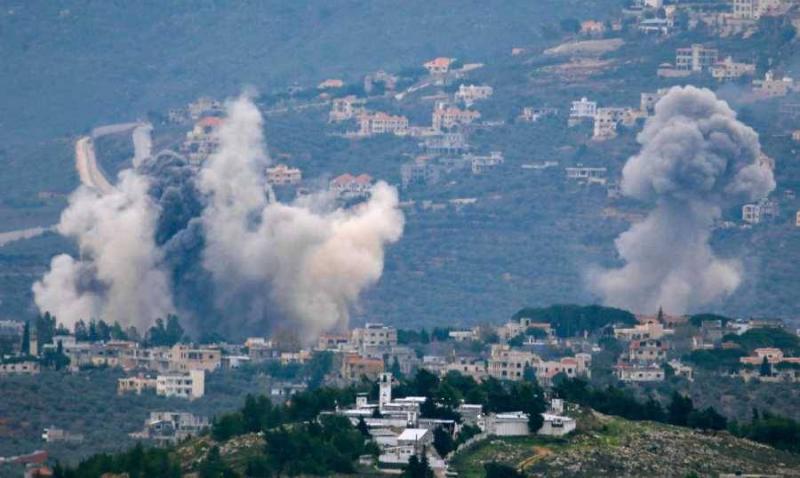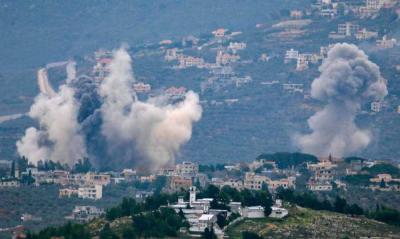The series of UN warnings that emerged yesterday regarding the dangers of a large-scale war in Lebanon indicates an extremely concerning level of danger that has surpassed the confrontations between Israel and Hezbollah, amidst the ongoing "war of depths" for the second consecutive day. This situation draws a bleak image of the potential for losing control on both sides of the Lebanese-Israeli border at any moment, as reported by "An-Nahar".
If the Israeli assault the day before on Baalbek Plain marked the most serious indicator since the July 2006 war regarding the escalation of confrontations into a widespread conflict that could ignite war, then the unprecedented, broad, and intense missile response by Hezbollah yesterday, reaching the borders of Akka, conveyed a fiery message from the party about deepening the crisis of "displaced northern settlements" which influences the policies, plans, and conditions of the Israeli government regarding its confrontation with Hezbollah. These alarming developments increase concerns that Lebanon may be getting closer to the brink of war day by day, making the days leading up to the beginning of Ramadan around March 10 critical in testing whether the concept of 'linking the arenas' will remain valid, or whether the southern front will detach from the Gaza war at the moment a ceasefire is reached, negotiations for which are ongoing.
In this context, it was noteworthy that a contrasting atmosphere of de-escalation emerged later, as reported by Reuters, stating that Hezbollah would cease fire if Hamas agreed to a truce with Israel, provided that the shelling of Lebanon did not continue. Additionally, the U.S. State Department confirmed that Israel informed Washington that it does not wish to escalate tensions with Lebanon and seeks to resolve the dispute diplomatically, emphasizing that "we do not want to escalate tensions in northern Israel either from its side or Hezbollah’s, and our focus now is on achieving a temporary ceasefire in Gaza."
### UN Warnings
However, the signs of concern regarding the slip towards a dangerous escalation were particularly evident in the statements of UN officials in Lebanon and their warnings amidst the explosive developments that unfolded in the last two days, according to "An-Nahar".
In this context, the UN Special Coordinator for Lebanon, Joanna Fronzeka, who met with Prime Minister Najib Mikati during the day, issued a statement "expressing her deep concern over the gradual expansion of cross-border fire both in terms of area and intensity, which increases the risks of a wider conflict and undermines Security Council Resolution 1701." She urged for "an immediate cessation of the dangerous cycle of violence and a return to a ceasefire." She expressed "regret over the impact of fighting on civilians' lives and property, and the displacement of thousands from border areas," reiterating "the urgent need to adhere to international humanitarian law and protect civilians at all times."
She noted that "in pursuit of her good offices, the Special Coordinator has increased her communication with all parties to take urgent steps to halt escalation. She also encouraged collaborative efforts by international partners to assist the parties in finding sustainable solutions that enhance security and stability along the Blue Line. She affirmed her commitment to supporting a political process leading to a permanent ceasefire and finding a long-term solution to the conflict as stipulated in Resolution 1701."
In the same context, the head of the UNIFIL mission and its Force Commander, General Aruldo Latharo, announced, "we have witnessed a concerning shift in the exchange of fire in recent days, and we are now seeing an expansion and intensification of strikes." He added, "We have continued our active work with the parties to ease tensions and prevent serious misunderstandings, but recent events have the potential to endanger the political resolution of this conflict." He concluded: "We urge all parties concerned to cease hostilities to prevent further escalation and allow for a political and diplomatic resolution that can restore stability and ensure the safety of people in this region."




